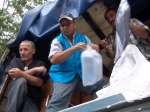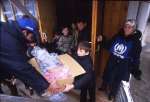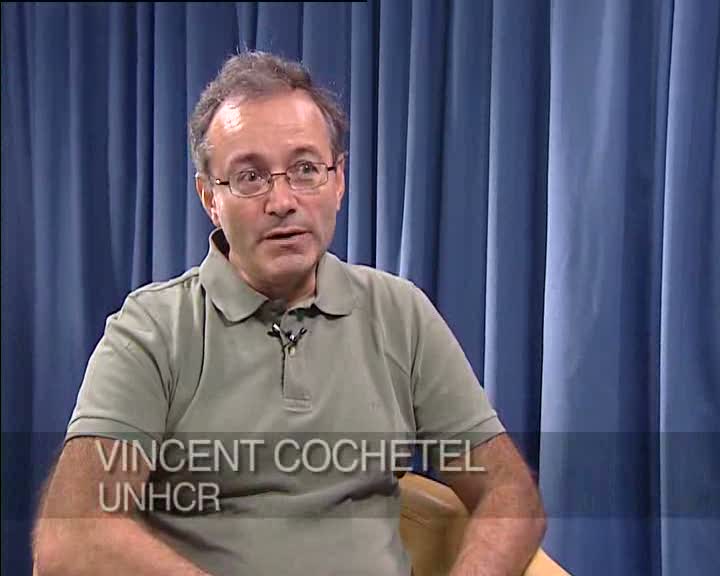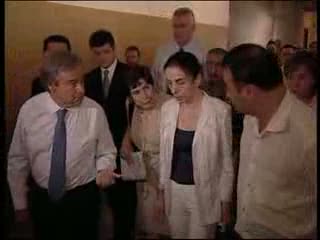Ogata condemns violence against aid workers, calls for hostage release
Press Releases, 29 April 1998
The United Nations High Commissioner for Refugees, Mrs. Sadako Ogata, today appealed for the release of Vincent Cochetel, a UNHCR staff member kidnapped in Russia three months ago.
Her statement came on the occasion of a silent march organized by UNHCR and the Cochetel family, marking the 90th day of the 37-year-old Frenchman's abduction at gunpoint on 29 January.
"In recent years, an increasing number of humanitarian aid workers have been victimized around the world. It is outrageous that aid workers, who help people in need, become deliberate targets of murder, hostage-taking, harassment and other forms of violence," Ogata said. "I call on all states to ensure the safety of aid workers, both international and local, and to do their utmost to secure the release of those currently in captivity."
Since 1992, some 140 UN staff members have been killed and at least 25 incidents of abduction involving aid workers have taken place. At least 50 UN staffers currently remain detained or missing. Numerous other security incidents have become a fact of life for many of the staff who serve in conflict areas.
In December 1997, a French woman working for an NGO assisting UNHCR's operation in Tajikistan was abducted and killed when a grenade exploded during a rescue attempt.
Also in Tajikistan, four UNHCR staffers were kidnapped together with 12 UN observers, relief workers and journalists in February 1997. They were later released.
Between 1994 and 1997, more than 33 mainly local relief workers were killed while assisting refugees under UNHCR's operation in the African Great Lakes region. Three remain missing.
During the conflict in former Yugoslavia, eight UNHCR staff members were killed, many while driving relief convoys. In addition, a four-man Italian flight crew was shot down over Bosnia during a mission to airlift food supplies to Sarajevo in 1992.
Vincent Cochetel heads UNHCR's sub-office in Vladikavkaz, Russian Federation, which assists some 100,000 refugees and displaced people from Georgia, Chechnya, Ingushetia and North Ossetia.
Before his posting in the northern Caucasus in 1996, he was a legal officer at UNHCR offices in Turkey, France and Geneva Headquarters and later headed UNHCR's liaison office in the Slovak Republic. He also served in the Commission of European Community (Dublin and Brussels) and in the Council of Europe (Strasbourg). Cochetel holds advanced degrees in international public law with honours from the François Rabelais University in Tours and the University of Paris. He is married and has two daughters.
A silent march from the UNHCR building in Geneva to the Place des Nations and a rally, including a moment of silence, are to proceed today, 29 April, at 12 noon local time. Other UN organizations, the International Committee of the Red Cross, the International Federation of Red Cross and Red Crescent and other humanitarian agencies are invited to join the march. Participants are requested to carry yellow flowers as a sign of hope for the early and safe release of all hostages.
UNHCR offices and those of other humanitarian agencies around the world are invited to express their solidarity today with the victims and their families. A march calling for the release of Vincent Cochetel is also planned in Tours, France, organized by Vincent Cochetel's friends and relatives at 18:00 local time.


































